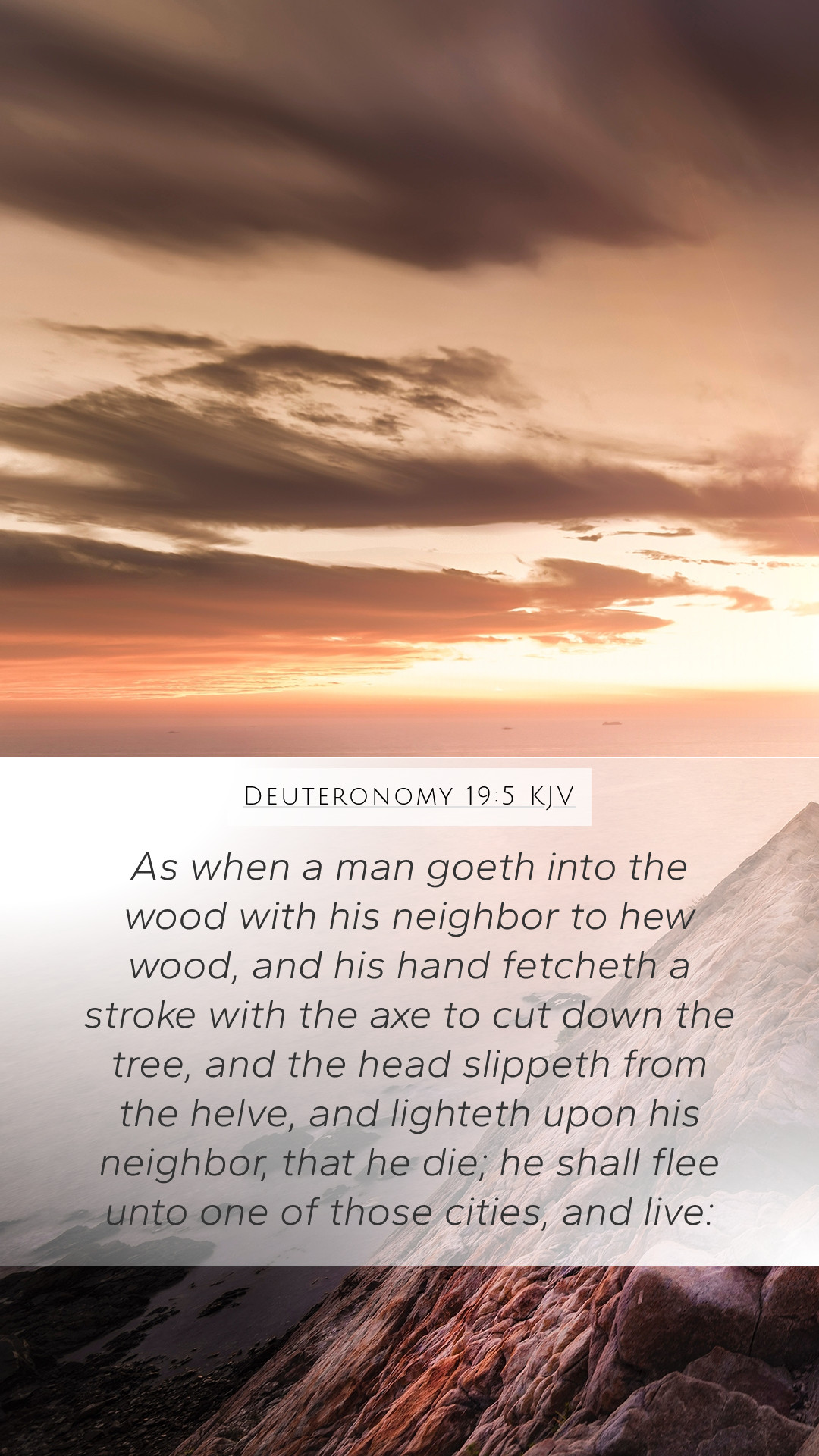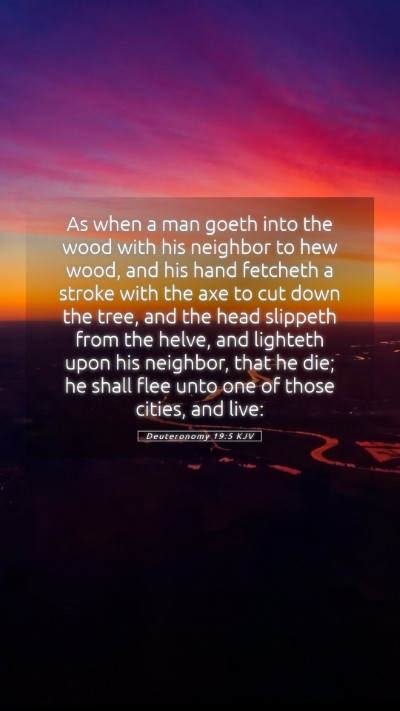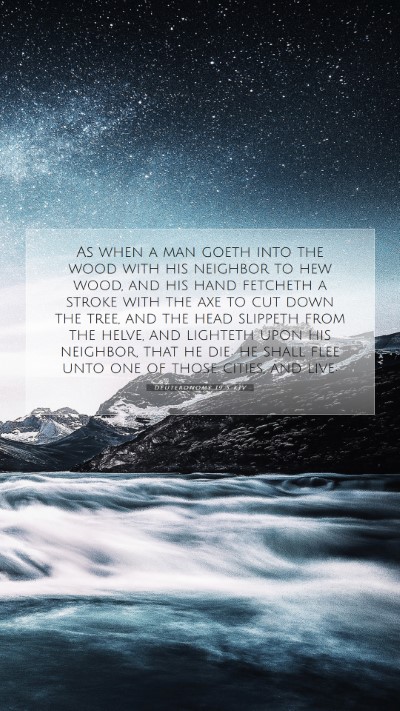Understanding Deuteronomy 19:5
Deuteronomy 19:5 states: "As when a man goes into the forest with his neighbor to cut timber, and his hand swings the axe to cut down the tree, and the head slips from the handle and strikes his neighbor so that he dies, he may flee to one of these cities and live." This verse addresses the concept of unintentional manslaughter and the need for cities of refuge in ancient Israel.
Meaning and Significance
This passage illustrates a legal provision for individuals who commit homicide unintentionally. It reflects the justice system's acknowledgment of human fallibility and the distinction between murder and manslaughter.
Insights from Public Domain Commentaries
-
Matthew Henry:
Henry emphasizes that this verse demonstrates God's mercy toward those who commit acts without malice. He explains that the cities of refuge were places of safety for individuals who accidentally caused harm to another, reflecting God's justice by providing a means of protection from avengers.
-
Albert Barnes:
Barnes offers a detailed analysis highlighting the purpose of the cities of refuge in ensuring the protection of those who accidentally kill someone. He notes that the regulations surrounding these cities promote social order and instill a sense of accountability among individuals.
-
Adam Clarke:
Clarke points out the practical implications of this law, showing how it serves as a safeguard against the cycle of vengeance. He underscores that the intention behind the act is paramount, and the city’s refuge acts as a place for judgment until the truth is ascertained.
Biblical Exegesis and Context
In order to fully grasp the meaning of Deuteronomy 19:5, it's crucial to consider the historical and cultural context of ancient Israel.
The establishment of cities of refuge is rooted in a broader legal framework intended to preserve life and limit blood feuds. The Israelites were commanded to create designated cities where individuals could seek asylum, thus preventing unjust retribution and allowing due process.
Theological Implications
This verse contributes to the theological understanding of divine justice and mercy. It signifies God's understanding of human nature: that people can cause harm accidentally and that He has provisions for such instances.
Moreover, it reflects the need for a community that values reconciliation over vengeance, offering an opportunity for the offender to live and avoid the consequences of unintentional harm.
Cross References
- Exodus 21:12-14 - Discusses laws concerning manslaughter and intentional murder.
- Numbers 35:11 - Outlines the establishment of cities of refuge.
- Joshua 20:2-3 - Further elaborates on the cities of refuge and their purpose.
Application of Scripture
Understanding Deuteronomy 19:5 provides us with principles that can be applied in our daily lives. It teaches us about the importance of mercy, the value of community, and the need for systems that protect individuals from injustice.
As we engage in Bible study groups or online Bible study, this verse offers a profound example of how God's laws are designed to foster peace and prevent conflict.
Conclusion
Deuteronomy 19:5 emphasizes both justice and mercy, calling for careful examination of actions and intentions. It serves as a reminder of God's character and laws that ultimately lead to a just society. Engaging with this verse through various Bible study tools and resources can deepen our understanding and appreciation of Scripture.


